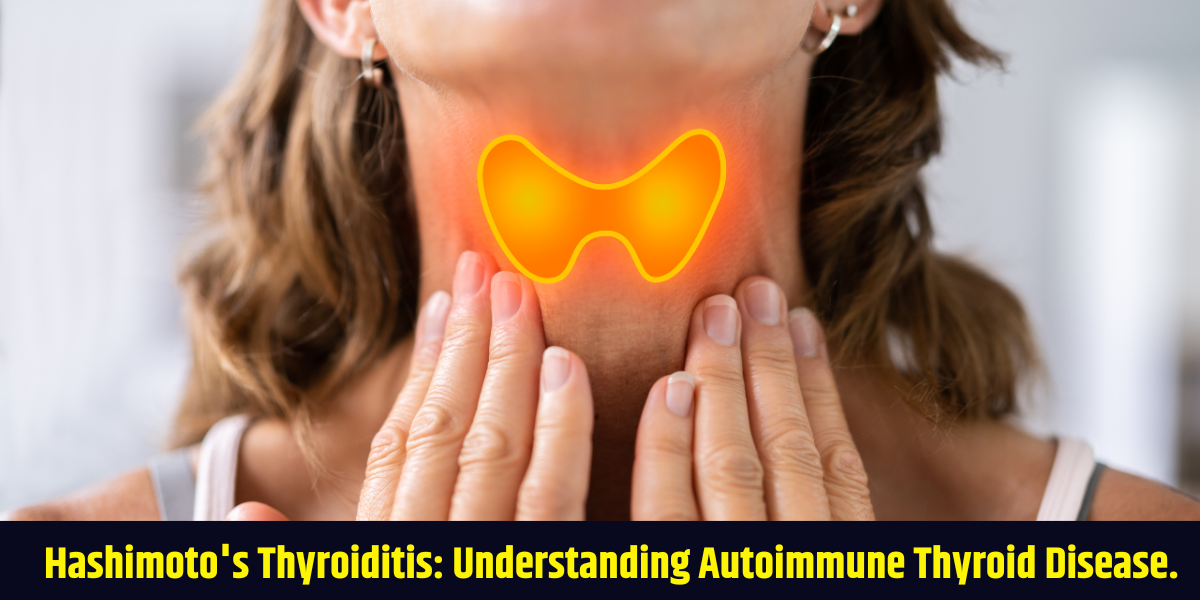Hashimoto’s Thyroiditis: Understanding Autoimmune Thyroid Disease.
Hashimoto’s Thyroiditis, also known as chronic lymphocytic thyroiditis, is a common autoimmune disorder that affects the thyroid gland. In this condition, the immune system mistakenly attacks the thyroid, causing inflammation and impairing its ability to produce hormones that regulate metabolism. As a result, Hashimoto’s can lead to hypothyroidism, where the body produces insufficient thyroid hormones. This chronic disease primarily affects women and is often detected through blood tests or physical symptoms like fatigue, weight gain, and sensitivity to cold. Understanding Hashimoto’s is key to managing thyroid health and overall well-being. Dr. Girish Kirad, a thyroid doctor in Chandan Nagar, can help you manage your thyroid health effectively.
What Is Hashimoto’s Thyroiditis?
Hashimoto’s Thyroiditis is an autoimmune disorder where the immune system mistakenly attacks the thyroid gland. The thyroid is responsible for producing hormones that regulate metabolism, heart rate, and body temperature. Over time, this condition can lead to hypothyroidism, where the thyroid is unable to produce enough hormones to maintain normal body functions.
What Are the Symptoms of Hashimoto’s Thyroiditis?
People often ask, “What are the early signs of Hashimoto’s?” Common symptoms include fatigue, weight gain, dry skin, hair loss, and sensitivity to cold. However, these symptoms can appear gradually, and many people do not realize they have Hashimoto’s until it has progressed. Dr. Girish Kirad, a thyroid doctor in Chandan Nagar, recommends regular thyroid function tests if you experience persistent fatigue or unexplained weight gain.
What Causes Hashimoto’s Thyroiditis?
Hashimoto’s is caused by an immune system malfunction. Factors such as genetics, hormonal imbalances, and environmental triggers (like infections or stress) may contribute to its development. Women are more likely than men to develop this condition, especially during middle age. If you are concerned about your risk factors.
How Is Hashimoto’s Thyroiditis Diagnosed?
Diagnosis usually involves a blood test to check the levels of thyroid hormones (TSH and T4) and antibodies against thyroid tissue (anti-TPO). People often wonder, “How can I detect Hashimoto’s early?” Regular screening, especially if you have a family history of thyroid issues, can help detect the disease before it causes significant damage.
Can Hashimoto’s Thyroiditis Be Cured?
Unfortunately, there is no cure for Hashimoto’s, but it can be effectively managed with medication. Most patients are treated with synthetic thyroid hormone (levothyroxine) to normalize hormone levels. If you’re unsure about treatment options, Dr. Girish Kirad, can tailor a treatment plan to your needs, ensuring optimal management of the condition.
What Is the Best Diet for Hashimoto’s Thyroiditis?
Many people ask, “Can diet help manage Hashimoto’s?” While no specific diet can cure Hashimoto’s, some foods may help reduce inflammation. A balanced diet rich in selenium, zinc, and omega-3 fatty acids may support thyroid health. It’s also advisable to avoid highly processed foods and excess sugar, which can exacerbate symptoms.
Living with Hashimoto’s Thyroiditis requires proper management and regular monitoring. With the right approach and expert care from professionals like Dr. Girish Kirad, a thyroid doctor in Chandan Nagar, patients can lead a healthy life while keeping symptoms under control. If you suspect you have thyroid issues or need a personalized treatment plan, schedule a consultation to take control of your thyroid health.




